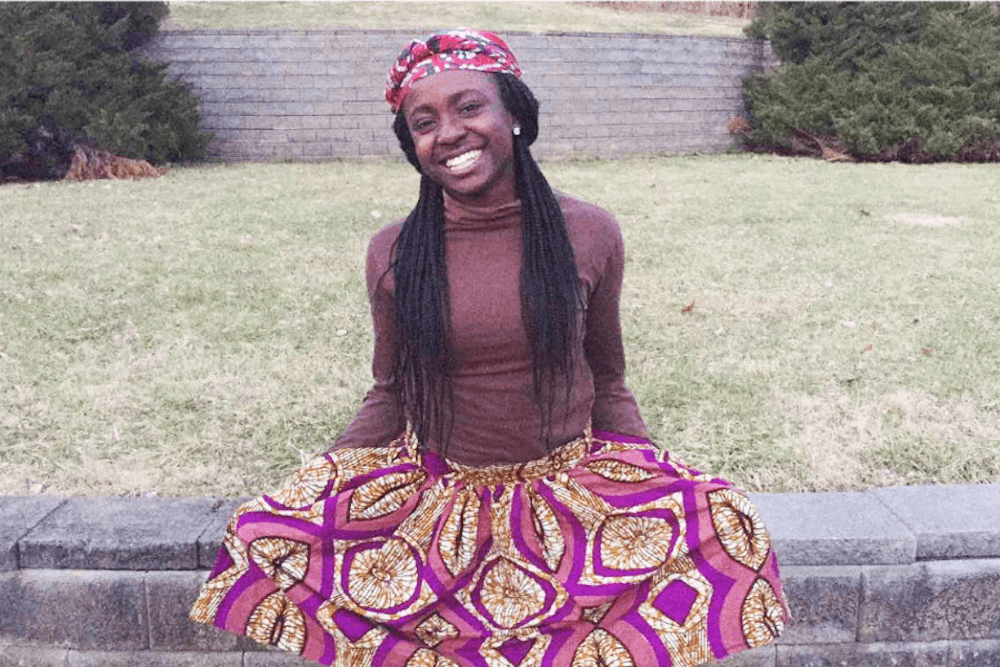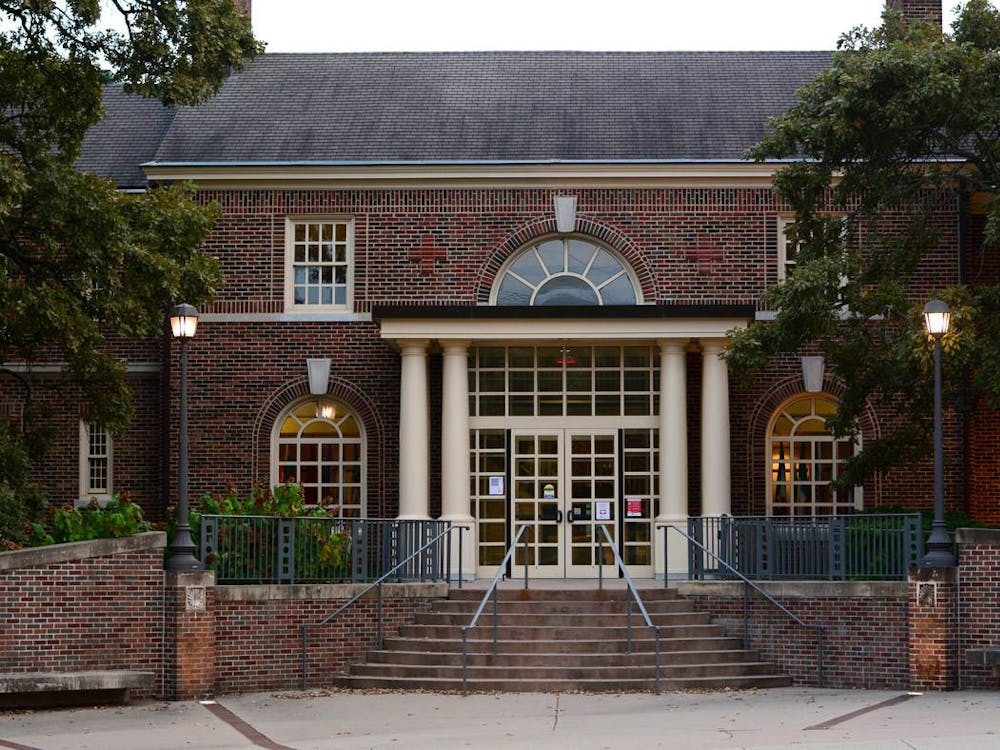By Angela Hatcher, Senior Staff Writer
This is the first in a series of profiles of international students.
First-year Akosua Boadi-Agyemang has an infectious laugh. When she finds something truly funny, she'll throw her head back, put her hand over her mouth and start shaking with laughter. This typically happens after a fellow Miami University student tries to pronounce her name.
"Just call me Nana!" she'll say after laughing through multiple failed attempts. 'Akosua' has proven to be too difficult a name to pronounce.
Nana's smile is one of her defining features. Her smile is wide and genuine. Her white teeth stand out against her dark skin. She is petite and sassy. Her friends describe her as "honest" and "the best kind of person to be around."
She is a business economics major whose mission is to make a name for herself at Miami and beyond. Like many other students in the Farmer School of Business, she is driven, intelligent, ambitious and passionate.
The only difference is Nana is an international student, 8,102 miles away from her home in Francistown, Botswana.
People often ask Nana where she is from right after she introduces herself. The combination of her unique name and slightly British accent automatically label her as different.
"I'm from Africa. Born in Botswana, but my parents are from Ghana," she'll say.
That's typically when the questions begin to flood in:
"I don't mean to be rude, but … What do you live in?"
"How did you get to the U.S.? Like, do you guys have planes?"
Enjoy what you're reading?
Signup for our newsletter
"How do you speak English so well? Don't they speak Swahili or something?"
"Why do you have a British accent?"
"Did you have a pet elephant? Or a lion?"
"Why don't you sound African?"
What is an African supposed to sound like? she'll ask herself internally.
Nana maintains her good humor, welcoming these questions as an opportunity to explain what her life is like in Botswana.
She grew up in a suburb in Francistown with her mom, dad, two sisters and pet dog - a tiny white maltese poodle named Winner. She lives in a brick house in Botswana. She went to John Mackenzie High School where she took courses using the British system, "A-Level Courses," receiving college credit for her business 101 class and accounting course.
There's a large international airport in Botswana called Sir Seretse Khama International Airport that she flew out of when she came to the United States for the first time last year to visit New York.
She did not grow up on the Serengeti in a hut with a pet antelope. She grew up going to the mall with her friends and watching movies and fussing over algebra homework.
She went to prom. She was student body president. She was and still is a die-hard football (soccer) fan. She was a model student and a normal teenager.
"I blame Google," Nana said.
Indeed, the first image that pops up when you type 'Botswana' into the search engine is a series of photographs depicting herds of elephants bathing in rivers near the Serengeti, prides of lions rolling around on distinctly yellow grass and groups of Batswana standing outside of their huts built with branches and brush.
It doesn't do much to dissuade people from generalizing Africa.
Nana is a dual citizen of Ghana and Botswana. Both of her parents are Ghanaian and they grew up there. Her father nationalized and became a citizen of Botswana (a Motswana) Her mother is a permanent resident of Botswana. She represents both her nationality and ethnicity linguistically, speaking Twi (native to Ghana) and Setswana (native to Botswana). She does not speak Swahili.
Nana's reasons for coming to Miami were twofold: to get an education at a university that has a reputable business school and to pursue a future career in the States.
But her journey to the United States has not been an easy one. She has been met with ignorance and her identity has been generalized and marginalized. As one of the less than 20 percent of international students who is not from China, she is in the minority.
"If you're a minority international student, no one really considers your culture unless they know you are from a different place," Nana said.
Whether it be Nana from Botswana, a student from the United Arab Emirates or a student from Kazakhstan, students at Miami tend to generalize and classify international under one branch: Asian.
"Or, more specifically, Chinese," Nana said. "People need to know that there are other international students."
While Nana desires this campus to be a place of greater representation for the minority international community, she worries about whether or not the domestic students will still maintain their ignorance and naiveté in regards to her home.
"It can be demeaning," Nana said. "Sometimes people say things or ask things jokingly, but you can tell they don't know, and sometimes it seems like they don't care to learn."
What bothers Nana the most is the complete lack of fundamental cultural understanding and the tendency for people to generalize an entire continent as one homogenous region.
"There are so many cultures in Africa. It's not one country. It's an entire continent," Nana said. "It's so diverse within each country linguistically and culturally."
In fact, Africa is comprised of 54 countries, more than 1,500 languages and thousands of ethnic groups.
Nana's biggest wish is that people will begin to recognize Africa's diversity so that they can see diversity within her own identity.
"I want to share my culture with everyone else," Nana said. "It makes me so happy when I see the flag of Ghana or Botswana in the foyer of MacMillan or the Office of Diversity Affairs. Seeing it makes me realize that people know those countries exist and that I am relevant on this campus, despite the fact that I am a minority."




